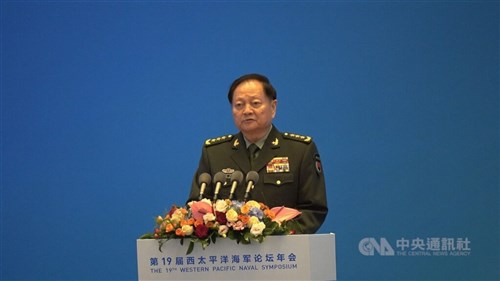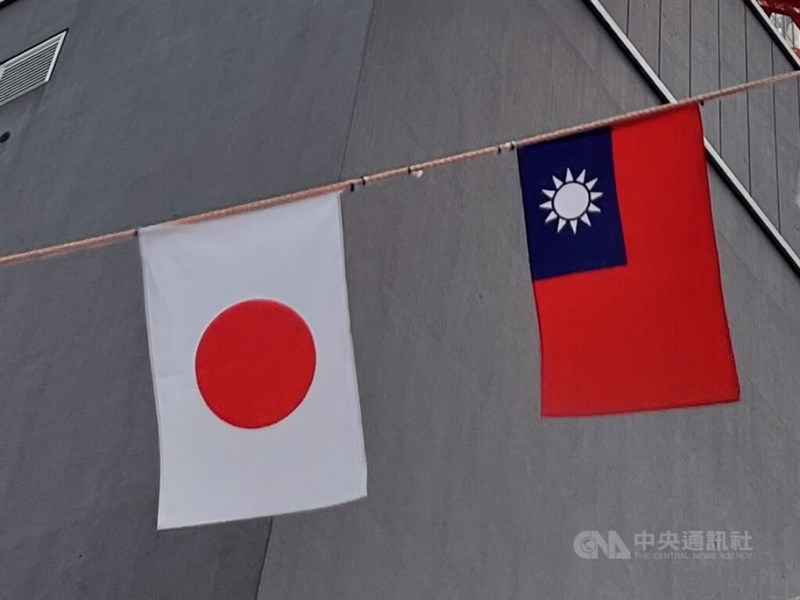ANALYSIS/Chinese military drills around Taiwan could be first in series: Expert
05/23/2024 09:36 PM
China's military exercises around Taiwan, launched just three days after the inauguration of President Lai Ching-te (賴清德), whom Beijing has labeled a "separatist," could mark the beginning of a series of such drills, a military expert said Thursday.
(Full text of the story is now in CNA English news archive. To view the full story, you will need to be a subscribed member of the CNA archive. To subscribe, please read here.)
More in ANALYSIS
![Xi's military purge raises Taiwan miscalculation risk: Experts]() Xi's military purge raises Taiwan miscalculation risk: ExpertsChinese President Xi Jinping's (習近平) ongoing purge of senior military leaders, most recently targeting top general Zhang Youxia (張又俠), could help him consolidate power and potentially increase the risk of strategic miscalculation over Taiwan, according to experts.01/27/2026 09:31 PM
Xi's military purge raises Taiwan miscalculation risk: ExpertsChinese President Xi Jinping's (習近平) ongoing purge of senior military leaders, most recently targeting top general Zhang Youxia (張又俠), could help him consolidate power and potentially increase the risk of strategic miscalculation over Taiwan, according to experts.01/27/2026 09:31 PM![Japan vote a 'high-stakes gamble' of importance to Taiwan: Experts]() Japan vote a 'high-stakes gamble' of importance to Taiwan: ExpertsWidely seen as the most Taiwan-friendly Japanese prime minister since Shinzo Abe, Sakae Takaichi dissolved the House of Representatives on Friday three months after taking office, setting the stage for a snap election on Feb. 8 as she attempts to consolidate her leadership.01/24/2026 05:55 PM
Japan vote a 'high-stakes gamble' of importance to Taiwan: ExpertsWidely seen as the most Taiwan-friendly Japanese prime minister since Shinzo Abe, Sakae Takaichi dissolved the House of Representatives on Friday three months after taking office, setting the stage for a snap election on Feb. 8 as she attempts to consolidate her leadership.01/24/2026 05:55 PM![Not time to worry about TSMC's reported expansion in U.S.: Experts]() Not time to worry about TSMC's reported expansion in U.S.: ExpertsSpeculation surrounding Taiwan Semiconductor Manufacturing Co.'s (TSMC) potential expansion in the United States should not be overinterpreted, as structural and economic constraints mean such moves are unlikely to weaken Taiwan's central role in advanced chipmaking in the near future, experts said.01/15/2026 08:19 PM
Not time to worry about TSMC's reported expansion in U.S.: ExpertsSpeculation surrounding Taiwan Semiconductor Manufacturing Co.'s (TSMC) potential expansion in the United States should not be overinterpreted, as structural and economic constraints mean such moves are unlikely to weaken Taiwan's central role in advanced chipmaking in the near future, experts said.01/15/2026 08:19 PM
Latest
- Society
4 indicted in Taichung for scamming Chinese out of NT$200m
02/02/2026 10:33 PM - Science & Tech
Nvidia to expand Taiwan presence amid supply chain growth: CEO
02/02/2026 09:45 PM - Culture
Barbie Hsu statue unveiled at her resting place
02/02/2026 09:42 PM - Society
Man indicted for illegally importing bird flu vaccines from China
02/02/2026 08:46 PM - Culture
Taiwanese singer-songwriter Yuan Wei-jen dies at 57
02/02/2026 08:37 PM


